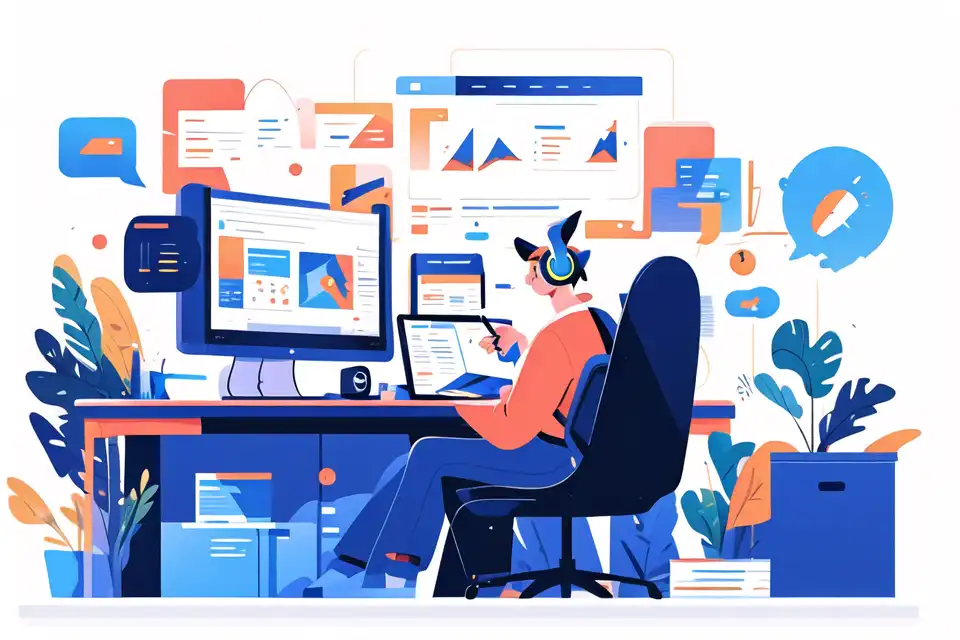Fashion Forecasting
Enhance your understanding of fashion forecasting and optimize your operations for success with Lark's solutions tailored for your specific needs in the retail industry.
Try Lark for Free
In today's fast-paced retail landscape, the influence of fashion forecasting has become more substantial than ever before, shaping the direction of retail businesses. This article aims to delve into the intricacies of trend projection, its significance, working mechanisms, dispelling misconceptions, and exploring real-world examples from top retail companies. Additionally, expert quotes and a comprehensive FAQ section offer valuable insights into the world of trend projection.
Use Lark Base to transform your retail business.
What is trend projection?
Trend projection, also known as fashion forecasting, encompasses the process of predicting upcoming trends, styles, colors, and fabrics in the fashion industry. In a retail context, it involves anticipating consumer demands and preferences to guide the creation, production, and purchasing of merchandise. By analyzing historical data and incorporating insights from various sources, trend projection enables retailers to make informed decisions in their product offerings.
Significance of trend projection
Understanding the significance of trend projection in retail is vital. It serves as a strategic tool for retailers to align their offerings with the ever-changing preferences of consumers, thereby maximizing sales and staying ahead of competitors. The role of trend projection has evolved significantly over time, leveraging technology and data analytics to adapt to dynamic market trends and consumer behavior.
How trend projection works in retail
Trend projection in the retail sector entails a multi-faceted approach that integrates market research, trend analysis, consumer behavior study, and industry expertise. By leveraging advanced analytics and trend identification tools, retailers can gain valuable insights into upcoming fashion trends, enabling them to tailor their product strategies to meet consumer demand with accuracy and relevance. This proactive approach to trend projection helps retailers stay responsive to market shifts and maintain a competitive edge.
Learn more about Lark x Retail solutions
Common misconceptions about trend projection
There are prevalent misconceptions surrounding trend projection, which can lead to misunderstandings about its true essence. Contrary to popular belief, trend projection is not merely a guessing game based on personal opinions or fleeting observations. It is a data-driven process, grounded in rigorous analysis and industry expertise, ensuring that retailers make reliable predictions that resonate with consumer preferences.
Benchmarks and examples from top retail companies
Macy's - embracing data-driven projections
Macy's - embracing data-driven projections
Macy's, a renowned retailer, has embraced data-driven trend projection to optimize their product offerings. By analyzing extensive consumer data, Macy's has been able to tailor their merchandise assortments and marketing initiatives to match emerging fashion trends. This shift towards data-driven decision-making has significantly boosted Macy's sales and enhanced customer satisfaction.
Zara - agile adaptation to trends
Zara - agile adaptation to trends
Zara, a global fashion powerhouse, is known for its agile approach to trend projection. By closely monitoring consumer preferences and swiftly adapting to emerging trends, Zara has solidified its position as a trendsetter in the fashion industry. This proactive stance has not only elevated Zara's brand appeal but has also set benchmarks for trend projection in the retail sector.
H&m - trend-responsive collections
H&m - trend-responsive collections
H&M, a leading fashion retailer, has leveraged trend projection to curate collections that resonate with diverse consumer segments. Through a meticulous analysis of market trends and consumer behaviors, H&M has consistently rolled out fashion collections that align with projected trends, fostering customer loyalty and bolstering their market presence.
Learn more about Lark x Retail solutions
Expert quotes on trend projection
Prominent experts in the field of fashion and retail share their insights on the significance and impact of trend projection.
-
“Trend projection serves as a compass for retailers, guiding them towards a future that reflects consumer aspirations and preferences.” - Jane Doe, Fashion Industry Analyst
-
“In a landscape defined by rapid shifts, trend projection empowers retailers to anticipate and respond to evolving consumer demands effectively.” - John Smith, Retail Strategist
-
“The fusion of data analytics with trend observation forms the core of successful trend projection, enabling retailers to make informed decisions with confidence.” - Emily White, Fashion Consultant
Conclusion
In conclusion, trend projection stands as a cornerstone of success for retailers in an era defined by dynamic market trends and ever-evolving consumer preferences. By embracing the power of trend projection, retailers can position themselves as trendsetters, driving growth and fostering enduring connections with their customers.
Learn more about Lark x Retail solutions
Use Lark Base to transform your retail business.
